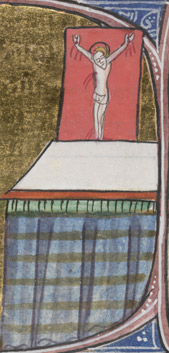 |
 |
 |
 |
 |
 |
 |
|
The new foundation (6/9) St Bernard’s continued as a Cistercian college until the Dissolution, and had its fair share of problems. In 1518, for example, Arnold Gye of Buckfast, provisor of the studium, was sued by the university stationer for failing to pay the nine shillings he owed for books.(27) St Bernard’s never flourished and numbers remained comparatively low. From 1500 to 1540, sixty-seven students passed through the college, but included one of the most active monk polemicists in the later Middle Ages, a John Hooper.(28) The last provisor of St Bernard’s was probably William Alynger (Alyng). His will of September 1539 includes bequests to former scholars and servants of the studium, as well as to the college. This provides a valuable insight to the lifestyle of a provisor, with references to the clothing he wore, furnishings in his chamber, and also his personal interests – his will mentions a virginal, a stringed instrument, similar to a harpsichord. William bequeathed various items of clothing to three scholars of Hailes, who also appear as witnesses to the will. Two of the scholars were each to receive a riding cloak and studying gown; one was also assigned a feather-bed; the third monk was left William’s worsted gown. The college steward (manciple) and barber were not forgotten. William’s pack saddle and bridle were earmarked for the former; the latter was to receive five shillings. Items that were left to St Bernard’s include pewter vessels and table linen (two cloths and six napkins), as well as ecclesiastical vestments and furnishings (an altar cloth, velvet vestment and appurtenances, a carpet and two cloths to hang in front of the altar). William also stipulated that certain named objects should forever remain in the provisor’s chamber, which was situated above the outer gateway of the college, namely, two carved wooden bedsteads, three chairs, four benches and four stools, a carved wooden cupboard and coffer. Other garments and items of interest that are mentioned in the will, and which shed some light on the provisor’s lifestyle and daily comforts, are a silk jacket, a velvet doublet, feather bed, sheets, bolster and coverlet, and a grey horse.(29) |
||
|
